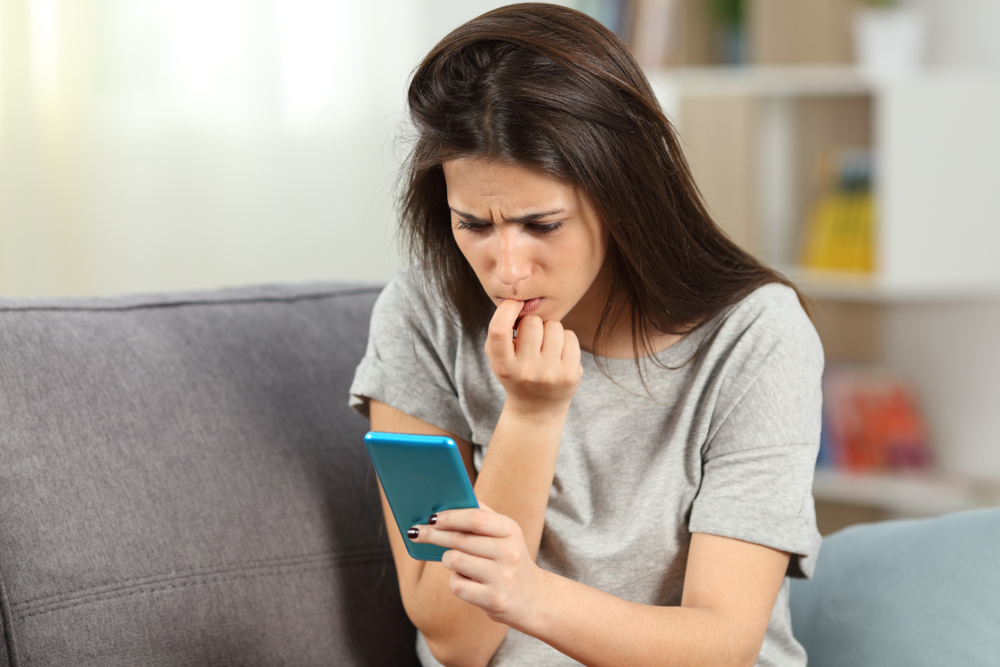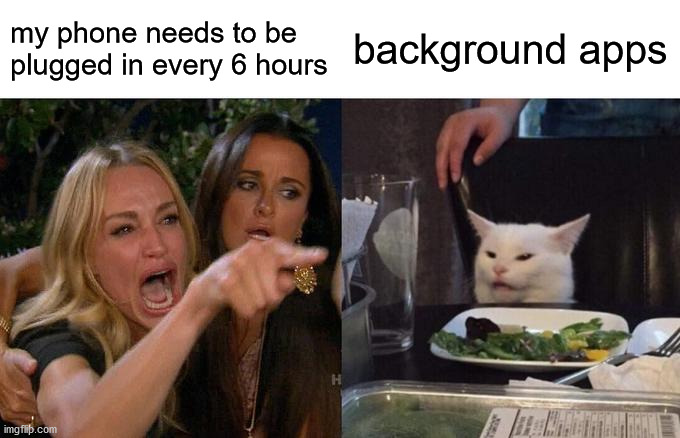A modern smartphone has many apps running in the background, which hog battery power. There are certain other reasons for an unexpectedly dead phone, including bad network reception, bad apps and the composition of the battery, just to name a few.
My friends often complain that their phone battery drains away, even when they don’t use it as frequently as ‘other people’. This happens with all smartphones, irrespective of brand, cost of purchase or how old they are. If it’s a smartphone, its battery will drain to zero, even if the phone is not being used all the time.
Admittedly, there is also a psychological aspect to this—a user doesn’t usually feel that they use their phone a lot, even if they do. So, in many cases, phone batteries drain simply because they’re being used all the time, despite what the owner claims.
However, in this article, we’ll take a look at the top four reasons why phone batteries discharge when they’re not in use.
Reasons Why Your Phone Discharges Even When It’s Not Being Used
Background Apps
When we talk about the battery life of a smartphone, most of us judge or comment on the quality/power of the battery in relation to how many apps and programs we can use on the phone. In other words, if a user primarily opens 5 apps on their phone, they’ll judge their phone battery on the amount of time it runs those 5 apps before needing to be recharged.

But here’s the thing… although we only judge the phone battery based on the apps we use actively or frequently, the battery must provide for and support ALL apps and programs that run on the phone.
And that includes background apps.
These are casually referred to as “background apps” because, well, they run in the background. Even when you put your phone to ‘sleep’ and turn the screen off, it still has to do some stuff in the background, such as communicating with a tower, listening for incoming texts and calls, and so on. (Source)
Background apps not only comprise ‘mainstream’ apps like Facebook, LinkedIn, Gmail, etc., but also Bluetooth, WiFi and even GPS.
If the ‘Location’ of your phone is set to ON, it means that it’s constantly communicating with GPS satellites that orbit our planet, a constant level of communication that consumes power.
If you want to check out the background apps hogging your phone battery at this very moment, go to the Power settings of your smartphone and see the breakdown of how its power is being used.
It is these apps that consume power, which is why your phone battery drains even when it’s not being used (actively).

If your phone battery is otherwise ‘healthy’, then this is usually the top reason why your phone battery will drain over a period of a few hours.
Also Read: Wi-fi Vs Mobile Data Battery Drain: Do Mobile Batteries Drain Faster On Mobile Data Than On Wi-fi?
Bad Network Reception
You may have noticed that your phone battery needs to be topped up more often if you have bad reception on the phone. This is especially true when you’re traveling through a region where the network reception on your phone ranges from bad to virtually nonexistent.
This happens because when a phone is in a region with bad reception, its transmitting power is boosted as much as possible so that it can find a cell tower with which to communicate. Put simply, a weak signal on your phone means that it will keep ‘looking’ for reception, and that activity eats up a significant amount of battery juice. (Source)

Therefore, if you want to conserve power while traveling, you must keep your phone switched off or on Airplane mode.
Bad (Battery-hogging) Apps
Some apps are just designed in a way that they consume a lot of power. Apps that draw heavily on the phone battery usually have a ton of features to offer, which often act as a diversion for how much battery juice they require. Users access and interact with these apps, completely oblivious to how much load they are putting on the phone battery.
You might be surprised when you open the Power settings of your phone and see that some of the biggest social media apps are actually the biggest battery hogs, as they run a lot of background processes on your device all the time.
A user may use just one app on their phone, but if that app is designed to consume a lot of power, then it will drain the phone’s battery rapidly, leaving the user disgruntled with their battery’s quality and longevity.
Battery Composition And Quality
Not all phone batteries are created equal. Some smartphones’ batteries are made from substandard components; this always has an effect on the durability of the phone battery. If you buy a brand-new battery and it drains rapidly right from the beginning, it’s highly likely that it may be a cheap rip off.
This is why phone companies usually put a disclaimer in their manuals advising people to NOT install generic batteries in their phone.
Note that a battery inevitably loses its juice over time, irrespective of whether it’s being used or not. If you charge a modern smartphone battery to 100%, switch off the phone and retrieve it after many months, it will still have lost some of its juice. In a way, you could say that getting drained is a battery’s fate, no matter what the circumstances.
These are the main reasons why your smartphones discharge over time, even when it’s not being used that much. Most smartphone batteries last for 48 hours at the very peak of their performance, after which they need to be recharged. However, if your phone battery’s performance is so abysmal that it needs to be plugged in every 2-3 hours, then you should probably get it checked and/or replaced by a professional.
Also Read: Does Letting A Phone Discharge Completely Before Charging It Again Improve Its Battery Life?
How well do you understand the article above!

References (click to expand)
- Lithium Battery Safety | EHS. The University of Washington
- Lithium-Ion Battery - Clean Energy Institute. The Clean Energy Institute
- Li-ion Battery (Theory) : Energy Storage Labs. Amrita Vishwa Vidyapeetham
- Rapid charging and draining doesn't damage lithium ion .... Stanford University
- A Guide to Understanding Battery Specifications. mit.edu
- (2019) "Fast Charging Technique For Lithium-Ion Cell" by Shabaz Khan. University of North Dakota
